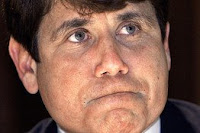I am enjoying the post Christmas holiday -- a chance to catch up on cleaning, organizing, and reading. One interesting thing I am reading about is the Caroline Kennedy bid for Hillary Clinton's vacant senate seat. This has raised the eyebrows of not only partisans who would likely oppose her Democratic party affiliation in any case, but of democratic politicians who might agree with her.

First question is why the gumption by Ms. Kennedy to even venture? Actually, is is quite predictable and happens all the time. In business terms is is simply extending the brand. Many companies attach their popular brand identity to new products or ideas all the time in hopes of taking advantage of that brand's equity. Did you know that Dial not only has its leading bar soap product but sells a deodorant (at least used to) by the same name? Dole became famous for its pineapples . . . or was it bananas or peaches or . . . In extending brands they also run the risk of diluting them.
In politics the branding is fundamental. It is Hillary Clinton, not Hillary Rodham. It is Caroline Kennedy not Caroline Schlossburg (or something like that). The appeal and name recognition is a politicians gold. But like any product or company brands, political brands can overreach. People associate Dial as being a soap not a deodorant. Consumers can be attracted by known brands -- the Kennedy magic would seem to be a case in point. Paradoxically, they are pretty savvy in rejecting these known brands when they overreach into areas they lack competence.
Since John and Bobby Kennedy forged the brand in the 1960s (sowed by their father well before then), the Kennedy family and name has remained intriguing (see this Emery piece that lays out the brand dilution well). But it doesn't mean that people will always buy it. Ted, while loved in his home state, has only marginal national standing (including a failed run for the presidency). Other third generation Kennedies have fizzled when trying move beyond local politics. And I suspect Caroline will have a hard time making traction. People will want to give her a chance, but they also know she lacks some basic qualifications. Despite the rash of political dynasties in the making the American way is still one of merit.

